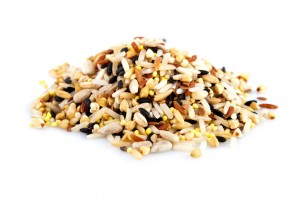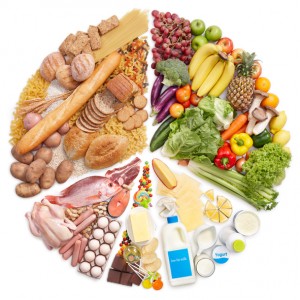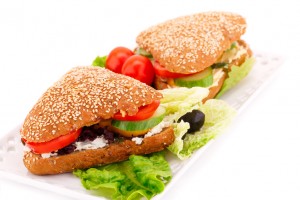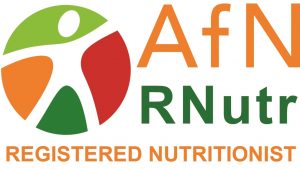 Do whole grains matter? A chocolate croissant is much easier to pick up on the go. Do we need to be swapping the pastries for a pot of muesli?
Do whole grains matter? A chocolate croissant is much easier to pick up on the go. Do we need to be swapping the pastries for a pot of muesli?
Whole grains are the whole package – the fibrous coat, the large bulb of carbohydrate and the small nutrient packed endosperm.
The British Dietetic Association says that a regular intake of whole grains can:
- Reduce the risk of stroke, heart disease and type 2 diabetes by 30%
- Possibly reduce the incidence of bowel cancer
- Maintain healthy digestion with soluble dietary fibre providing food for friendly bacteria while resistant fibres keep bowel contents moving.
- Provide a low GI source of carbohydrate to give slowly released energy.
 Many countries feel that the intake of whole grains is so important that they give specific dietary guidelines on the recommended number of portions to eat per day.
Many countries feel that the intake of whole grains is so important that they give specific dietary guidelines on the recommended number of portions to eat per day.
In Australia, the recommendation is for adults to eat six serves per day from ‘a variety of grain (cereal) foods, mostly whole grain’ as part of the advice for the diet to provide food choices for ‘optimal well-being’. One slice of bread, a half cup of cooked rice, noodles or porridge, or a quarter cup of muesli is roughly one portion.
American guidelines recommend adults eat 3 – 5 portions of grains per day, aiming for half of them to be whole grain.
The reality is that many people regularly eat no whole grains. We are particularly at risk when travelling as convenience is paramount and choices are limited. Processed foods, like our tasty chocolate croissant, use refined flours and therefore miss out on the precious nutrients in the whole grain. Added to this, they tend to be high in saturated fats, sugar, and salt, increasing our vulnerability to avoidable ill health.
How Can We Avoid Missing Out on Whole Grain Nutrients?
- Choose carefully: Oats and quinoa in porridge or muesli are available for breakfast in most transport hub cafes.
- Look for wholemeal bread in sandwiches, wraps and sushi/rice dishes.
 Carry our own supply of nuts and seeds to snack on.
Carry our own supply of nuts and seeds to snack on.- Plan ahead, if we know that processed food will be the only option on our travels, we need to carry with us some home-packed food.
Whole grains are a vital part of the cocktail of foods needed for a Mediterranean type diet. Small portions of meat and processed food, some oily fish, low-fat dairy, lots of vegetables, whole grains, fruits, nuts and olive oil should complement a lifestyle of regular exercise, limited alcohol and avoiding smoking. With this regime, we can reduce our risk of obesity, cardiovascular disease, and some cancers. While on the move, extra care is required to enjoy a tasty menu and yet ensure that our diet and lifestyle keeps us in good health.
© ExtraVitality 2017




























